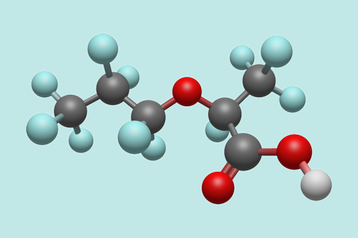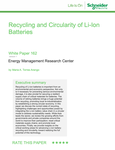The EU is poised to backtrack on a plan to ban toxic substances including PFAS "forever chemicals" after pressure from industry groups.
The EU had promised to ban PFAS and other substances, which can accumulate in living organisms and have been linked to cancers and reproductive problems. However, industry and engineering groups argued that the chemicals are needed for technologies that will help reach net zero.
Documents leaked to The Guardian show a set of options that would only ban 50 percent, 10 percent, or one percent of the toxic chemicals.
As part of the "Green Deal" announced in 2020, the EU proposed to ban between 7,000 and 12,000 chemicals.
These include PFAS, which are widely used in industrial products. In the high-tech sector, they are essential in silicon fabrication, and as working fluids for two-phase liquid cooling by pioneers such as Zutacore and LiquidCool. The leading producer, 3M, has announced it will pull out of the field, and cooling specialist Zutacore has announced a shift to an alternative producer by 2026.
The EU had said the REACH regulation, designed to restrict the use of chemicals, would only allow the use of harmful substances when it was "essential.”
Now the EU is reported to be climbing down after pressure from the chemical industry and rightwing political parties. The leaked proposals suggest banning one percent, ten percent, or 50 percent of the chemicals: The Guardian says EU officials typically select the middle option when offered choices such as these.
The options are suggested after analysis which suggested that health savings from chemical bans would be ten times the cost of those bans to industry. The EU could save around €11bn-€31bn in treating cancer and obesity, while business would only need to pay €0.9bn-€2.7bn a year to adapt.
As well as PFAS, EU regulators found that 17 percent of European children were at risk from combined exposure to mixtures of phthalates – linked to developmental and reproductive illnesses – in a survey of 13,000 EU citizens’ blood and urine last year. Traces of the reprotoxic endocrine disruptor bisphenol A were found in 92 percent of adults.
The study’s coordinator, Dr. Marike Kolossa-Gehring, said that more than 34m tonnes of carcinogenic, mutagenic, and reprotoxic substances were consumed in Europe in 2020.”
French President Emmanuel Macron has called for a pause in regulations to help industry. Belgian prime minister Alexander De Croo warned that too many rules would lose public support for green policies. The European People's Party has called for a moratorium on regulations that would increase costs for business.
The document seen by The Guardian was dated 13 January 2023 , and the regulations are due to be launched at the end of 2023.




